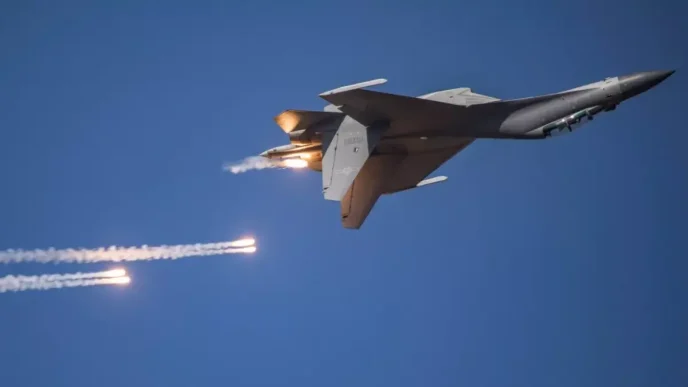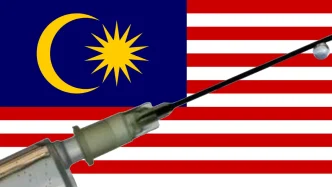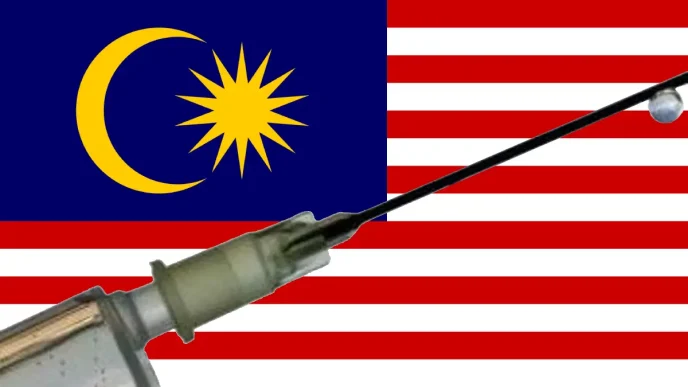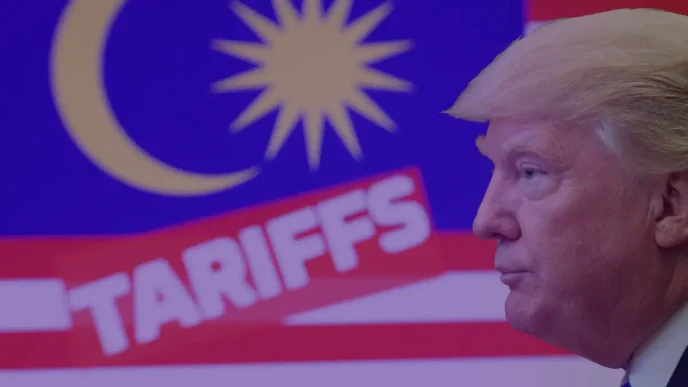In a sweeping operation that has sent shockwaves through Malaysia’s security establishment, anti-corruption authorities have dismantled a major smuggling ring allegedly orchestrated by senior military officers. The raids, conducted in the Klang Valley, resulted in the arrest of ten individuals, including five high-ranking armed forces personnel, exposing a deep-rooted nexus of corruption and crime that threatens national security.
Uncovering a Complex Network
The operation, codenamed Ops Sohor, was spearheaded by the Malaysian Anti-Corruption Commission (MACC) with support from its tactical squad. After a year of meticulous surveillance, authorities struck early on Wednesday, apprehending the suspects in simultaneous dawn raids starting at 6:30 a.m. Among those detained were five senior officers from the armed forces’ intelligence unit—two of whom are retired—and five civilians, including an Indonesian national. The age range of the suspects spans from 30 to 55, reflecting a diverse group allegedly united by illicit interests.
The military officers, originally tasked with preventing smuggling activities, are accused of betraying their mandate by colluding with criminal elements over the past five years. Initial findings suggest they leaked sensitive operational information to smugglers, facilitating the illegal importation of prohibited goods such as drugs, cigarettes, and other contraband from neighboring countries. The scale of the operation is staggering, with monthly smuggling activities estimated to be worth around 5 million ringgit (~US$1.19 million).
During the raids, authorities seized over 63,000 ringgit (~US$15,000) in cash, alongside drugs, alcoholic beverages, weighing equipment, and replica firearms. The haul underscores the breadth of the syndicate’s operations, which sources describe as “large and complex” posing significant challenges to law enforcement efforts to dismantle it fully.
Corruption at the Core
The allegations against the military officers paint a troubling picture of institutional rot within Malaysia’s armed forces. Tasked with safeguarding national borders, these individuals are believed to have profited handsomely from their illicit activities, reportedly amassing more than 3 million ringgit (~US$712,000) in ill-gotten gains. Sources familiar with the investigation indicate that bribes ranging from 30,000 to 50,000 ringgit (~US$7,100 to US$11,900) were paid for each smuggling trip, highlighting the lucrative nature of the enterprise.
The involvement of senior intelligence officers raises critical questions about oversight and accountability within Malaysia’s military. Their access to classified information and strategic positioning made them uniquely capable of shielding smugglers from detection, effectively turning protectors into perpetrators. This breach of trust not only undermines public confidence in the armed forces but also exposes vulnerabilities in national security protocols.
National Security Implications
Beyond the immediate financial toll, the smuggling syndicate’s activities have far-reaching implications for Malaysia’s safety and sovereignty. The influx of contraband, particularly drugs, fuels organized crime and social harm, while the leakage of military intelligence to criminal networks compromises border security. MACC’s Operations Deputy Chief Commissioner Ahmad Khusairi Yahaya emphasized the gravity of the situation, noting that such activities persist despite the presence of multiple agencies tasked with curbing them.
The case also shines a spotlight on Malaysia’s ongoing struggle with corruption, a pervasive issue that has long plagued public institutions. Transparency International’s 2023 Corruption Perceptions Index ranked Malaysia 57th out of 180 countries, reflecting moderate levels of perceived public sector corruption. Incidents like this threaten to erode recent gains in anti-corruption efforts, particularly under the administration of Prime Minister Anwar Ibrahim, who has vowed to prioritize governance reforms.
Legal Proceedings and Broader Impact
All ten suspects are scheduled to appear before the Putrajaya Magistrate’s Court for a remand application under Section 117 of the Criminal Procedure Code. The investigation, conducted under Section 16(a)(B) of the MACC Act 2009, is expected to uncover further details about the syndicate’s operations and potential accomplices. Among the detainees is an Indonesian woman, reportedly without valid travel documents, who is believed to have personal ties to one of the military officers under scrutiny. While her role remains unclear, her arrest points to the transnational dimensions of the smuggling network.
The operation’s success marks a significant victory for the MACC, which has faced criticism in the past for perceived inefficacy in tackling high-profile corruption cases. However, it also underscores the daunting task ahead. Dismantling such entrenched networks requires not only enforcement action but also systemic reforms to address the root causes of corruption, including inadequate oversight, low accountability, and the allure of financial gain in underpaid public sectors.
Regional Context and Challenges
Malaysia’s position as a maritime hub in Southeast Asia makes it a prime target for smuggling activities. Sharing borders with Thailand, Indonesia, and Singapore, the country serves as a conduit for illicit goods flowing through the region. The Strait of Malacca, one of the world’s busiest shipping lanes, further complicates efforts to monitor and prevent trafficking. Smuggling syndicates often exploit porous borders and corrupt officials to transport drugs, counterfeit goods, and even human cargo, with devastating consequences for regional stability.
Similar challenges have been observed in neighboring countries. In Thailand, for instance, authorities have grappled with smuggling rings involving state officials, particularly along the border with Myanmar, a major source of narcotics. Indonesia, too, faces issues with contraband entering through its vast archipelago, often with the complicity of local enforcers. Malaysia’s latest crackdown, while significant, is but a small step in addressing a regional problem that demands coordinated action and intelligence sharing among ASEAN member states.
Moreover, the involvement of military personnel in such activities is not unique to Malaysia. Across Southeast Asia, there have been instances of security forces engaging in or abetting criminal enterprises, often due to systemic issues like low salaries and lack of institutional checks. This phenomenon points to the urgent need for military reforms, including better remuneration, stricter vetting processes, and independent oversight bodies to prevent abuse of power.
Public Reaction and Political Ramifications
The arrests have sparked widespread concern among Malaysians, many of whom view the military as a bastion of national pride. Social media platforms have been abuzz with reactions, with users expressing dismay at the betrayal by those entrusted with protecting the nation. While specific posts and comments are not cited here due to verification constraints, the general sentiment reflects a mix of anger and disillusionment, with calls for harsher penalties and systemic change.
Politically, the scandal could have repercussions for the ruling coalition, which has staked much of its credibility on anti-corruption initiatives. Opposition parties are likely to seize on the incident to criticize the government’s handling of security and governance, potentially fueling public discontent ahead of future elections. For Prime Minister Anwar Ibrahim, whose administration has faced scrutiny over economic challenges and political stability, the case presents both a challenge and an opportunity to demonstrate resolve in combating corruption at the highest levels.
Looking Ahead
As the investigation unfolds, the Malaysian public and regional observers will be watching closely to see whether this operation marks the beginning of a broader reckoning with corruption in the armed forces. The MACC’s ability to secure convictions and trace the full extent of the smuggling network will be critical in restoring trust in public institutions. Equally important will be the government’s response in terms of policy reforms to prevent similar scandals from recurring.
For now, the arrests serve as a stark reminder of the fragility of national security when those tasked with its protection become its greatest threat. As Malaysia grapples with the fallout, the question remains: will this crackdown be a turning point, or merely a fleeting disruption in a cycle of systemic corruption?













